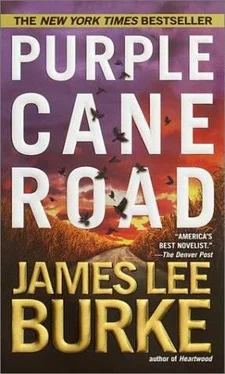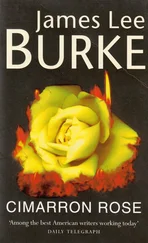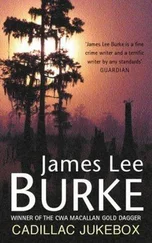
James Lee Burke
Purple Cane Road
A book in the Robicheaux series, 2002
For old-time University of Missouri pals Harold Frisbee and Jerry Hood
YEARS AGO, IN STATE documents, Vachel Carmouche was always referred to as the electrician, never as the executioner. That was back in the days when the electric chair was sometimes housed at Angola. At other times it traveled, along with its own generators, on a flatbed semitruck from parish prison to parish prison. Vachel Carmouche did the state's work. He was good at it.
In New Iberia we knew his real occupation but pretended we did not. He lived by himself, up Bayou Teche, in a tin-roofed, paintless cypress house that stayed in the deep shade of oak trees. He planted no flowers in his yard and seldom raked it, but he always drove a new car and washed and polished it religiously.
Early each morning we'd see him in a cafe on East Main, sitting by himself at the counter, in his pressed gray or khaki clothes and cloth cap, his eyes studying other customers in the mirror, his slight overbite paused above his coffee cup, as though he were waiting to speak, although he rarely engaged others in conversation.
When he caught you looking at him, he smiled quickly, his sun-browned face threading with hundreds of lines, but his smile did not go with the expression in his eyes.
Vachel Carmouche was a bachelor. If he had lady friends, we were not aware of them. He came infrequently to Provost's Bar and Pool Room and would sit at my table or next to me at the bar, indicating in a vague way that we were both law officers and hence shared a common experience.
That was when I was in uniform at NOPD and was still enamored with Jim Beam straight up and a long-neck Jax on the side.
One night he found me at a table by myself at Provost's and sat down without being asked, a white bowl of okra gumbo in his hands. A veterinarian and a grocery store owner I had been drinking with came out of the men's room and glanced at the table, then went to the bar and ordered beer there and drank with their backs to us.
"Being a cop is a trade-off, isn't it?" Vachel said. "Sir?" I said.
"You don't have to call me 'sir'… You spend a lot of time alone?"
"Not so much."
"I think it goes with the job. I was a state trooper once." His eyes, which were as gray as his starched shirt, drifted to the shot glass in front of me and the rings my beer mug had left on the tabletop. "A drinking man goes home to a lot of echoes. The way a stone sounds in a dry well. No offense meant, Mr. Robicheaux. Can I buy you a round?"
The acreage next to Vachel Carmouche was owned by the Labiche family, descendants of what had been known as free people of color before the Civil War. The patriarch of the family had been a French-educated mulatto named Jubal Labiche who owned a brick factory on the bayou south of New Iberia. He both owned and rented slaves and worked them unmercifully and supplied much of the brick for the homes of his fellow slave owners up and down the Teche.
The columned house he built south of the St. Martin Parish line did not contain the Italian marble or Spanish ironwork of the sugar growers whose wealth was far greater than his own and whose way of life he sought to emulate. But he planted live oaks along the drives and hung his balconies and veranda with flowers; his slaves kept his pecan and peach orchards and produce fields broom-sweep clean. Although he was not invited into the homes of whites, they respected him as a businessman and taskmaster and treated him with courtesy on the street. That was almost enough for Jubal Labiche. Almost. He sent his children North to be educated, in hopes they would marry up, across the color line, that the high-yellow stain that limited his ambition would eventually bleach out of the Labiche family's skin.
Unfortunately for him, when the federals came up the Teche in April of 1863 they thought him every bit the equal of his white neighbors. In democratic fashion they freed his slaves, burned his fields and barns and corncribs, tore the ventilated shutters off his windows for litters to carry their wounded, and chopped up his imported furniture and piano for firewood.
Twenty-five years ago the last adult members of the Labiche family to bear the name, a husband and a wife, filled themselves with whiskey and sleeping pills, tied plastic bags over their heads, and died in a parked car behind a Houston pickup bar. Both were procurers. Both had been federal witnesses against a New York crime family.
They left behind identical twin daughters, aged five years, named Letty and Passion Labiche.
The girls' eyes were blue, their hair the color of smoke, streaked with dark gold, as though it had been painted there with a brush. An aunt, who was addicted to morphine and claimed to be a traiture, or juju woman, was assigned guardianship by the state. Often Vachel Carmouche volunteered to baby-sit the girls, or walk them out to the road to wait for the Head Start bus that took them to the preschool program in New Iberia.
We did not give his attentions to the girls much thought. Perhaps good came out of bad, we told ourselves, and there was an area in Carmouche's soul that had not been disfigured by the deeds he performed with the machines he oiled and cleaned by hand and transported from jail to jail. Perhaps his kindness toward children was his attempt at redemption.
Besides, their welfare was the business of the state, wasn't it?
In fourth grade one of the twins, Passion, told her teacher of a recurrent nightmare and the pain she awoke with in the morning.
The teacher took Passion to Charity Hospital in Lafayette, but the physician said the abrasions could have been caused by the child playing on the seesaw in City Park.
When the girls were about twelve I saw them with Vachel Carmouche on a summer night out at Veazey's ice cream store on West Main. They wore identical checkered sundresses and different-colored ribbons in their hair. They sat in Carmouche's truck, close to the door, a lackluster deadness in their eyes, their mouths turned down at the corners, while he talked out the window to a black man in bib overalls.
"I've been patient with you, boy. You got the money you had coming. You calling me a liar?" he said.
"No, suh, I ain't doing that."
"Then good night to you," he said. When one of the girls said something, he popped her lightly on the cheek and started his truck.
I walked across the shell parking area and stood by his window.
"Excuse me, but what gives you the right to hit someone else's child in the face?" I asked.
"I think you misperceived what happened," he replied.
"Step out of your truck, please."
"My cotton-pickin' foot. You're out of your jurisdiction, Mr. Robicheaux. You got liquor on your breath, too."
He backed his truck out from under the oak trees and drove away.
I went to Provost's and drank for three hours at the bar and watched the pool games and the old men playing bouree and dominoes under the wood-bladed fans. The warm air smelled of talcum and dried perspiration and the green sawdust on the floor.
"Have any locals pulled in Vachel Carmouche?" I asked the bartender.
"Go home, Dave," he said.
I drove north along Bayou Teche to Carmouche's home. The house was dark, but next door the porch and living room lights were on at the Labiche house. I pulled into the Labiche driveway and walked across the yard toward the brick steps. The ground was sunken, moldy with pecan husks and dotted with palmettos, the white paint on the house stained with smoke from stubble fires in the cane fields. My face felt warm and dilated with alcohol, my ears humming with sound that had no origin.
Читать дальше













